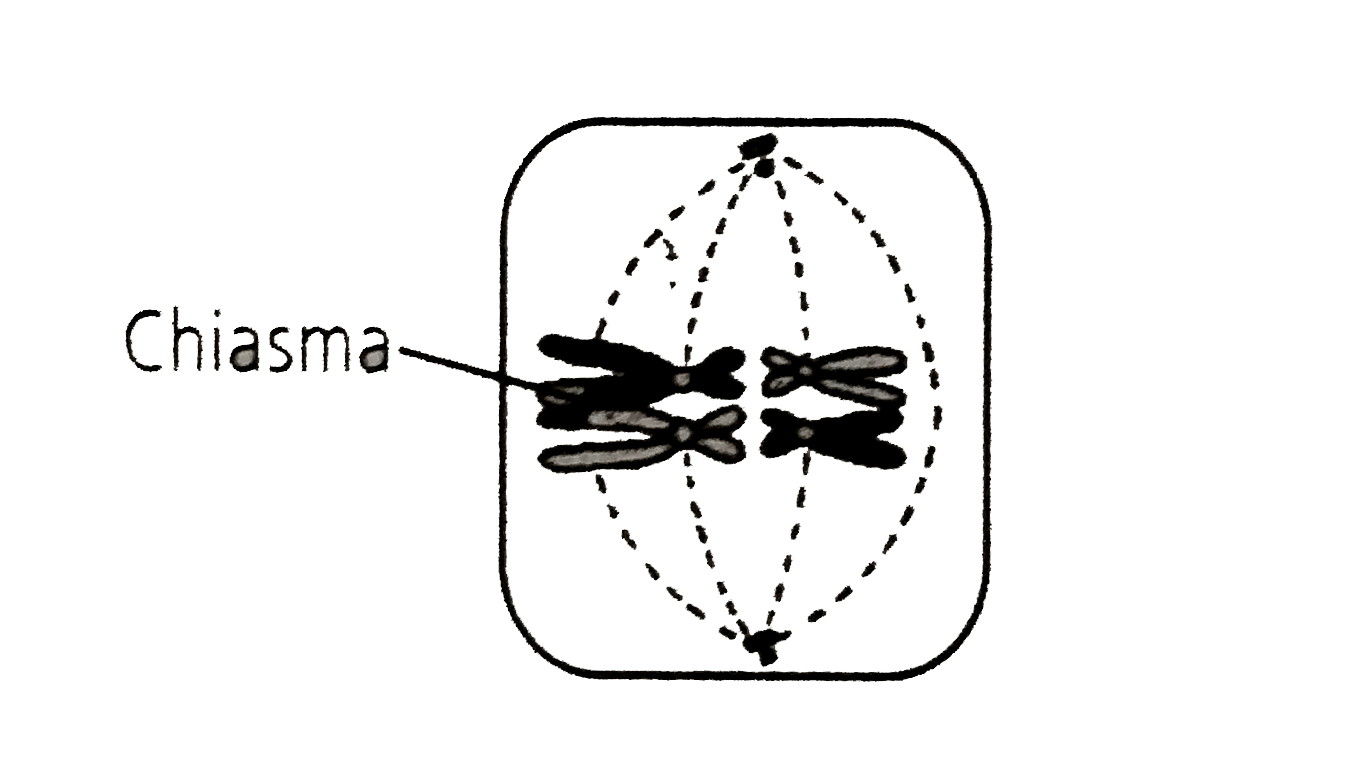When a cell with 40 chromosomes undergoes meiosis, each of the four resulting cells has
The correct Answer is:A
To solve the question, we need to understand the process of meiosis and how it affects the chromosome number in a cell. Here’s a step-by-step breakdown of the solution:
1. Identify the Initial Chromosome Count:
- The question states that the starting cell has 40 chromosomes.
2. Understand Meiosis:
- Meiosis is a type of cell division that reduces the chromosome number by half. It occurs in two stages: Meiosis I and Meiosis II.
3. Calculate the Resulting Chromosome Count:
- Since meiosis halves the chromosome number, we need to divide the initial chromosome count by 2.
- Calculation: 40 chromosomes ÷ 2 = 20 chromosomes.
4. Determine the Number of Resulting Cells:
- Meiosis results in four daughter cells from one parent cell.
5. Final Result:
- Each of the four resulting cells will have 20 chromosomes.
Conclusion:
When a cell with 40 chromosomes undergoes meiosis, each of the four resulting cells has 20 chromosomes.
- The question states that the starting cell has 40 chromosomes.
- Meiosis is a type of cell division that reduces the chromosome number by half. It occurs in two stages: Meiosis I and Meiosis II.
- Since meiosis halves the chromosome number, we need to divide the initial chromosome count by 2.
- Calculation: 40 chromosomes ÷ 2 = 20 chromosomes.
- Meiosis results in four daughter cells from one parent cell.
- Each of the four resulting cells will have 20 chromosomes.
When a cell with 40 chromosomes undergoes meiosis, each of the four resulting cells has 20 chromosomes.
Topper's Solved these Questions
Similar Questions
Knowledge Check
Identify the cell which does not undergo meiosis.
ABacterial cellBPlant cellCAnimal cellDFungal cellAfter meiosis I, the resultant daughter cells have -
ASame amount of DNA as in the parent cell in S - phaseBTwice the amount of DNA in comparison to haploid gameteCSame amount of DNA in comparison to haploid gameteDFour times the amount of DNA in comparison to haploid gameteIn oogenesis, when a diploid cell in the ovary undergoes, meiosis, how many ova results ?
A1B2C3D4
A cell with 2n=16 undergoes meiosis. Each of the four daughter nuclei formed at the end of the division will have
View SolutionWhen a cell undergoes meiosis, the number of chromosomes in daughter cells will be
View SolutionWhen pairing occurs in chromosomes (meiosis) :-
View SolutionDr. Johnson has discovered an amazing species of yeast that can grow on high quantity chocolate bars. He discovered a particular species when chocolate was not available, a diploid cell (2n = 32) can divide by meiosis producing four haploid spores and the same cell undergoes mitosis, how many chromo- somes will each resulting cell contain?
View SolutionIf a cell has a chromosome number after first meiosis equal to 48. the chromosome number in the daughter cells after the completion of meiosis will be
View Solution

